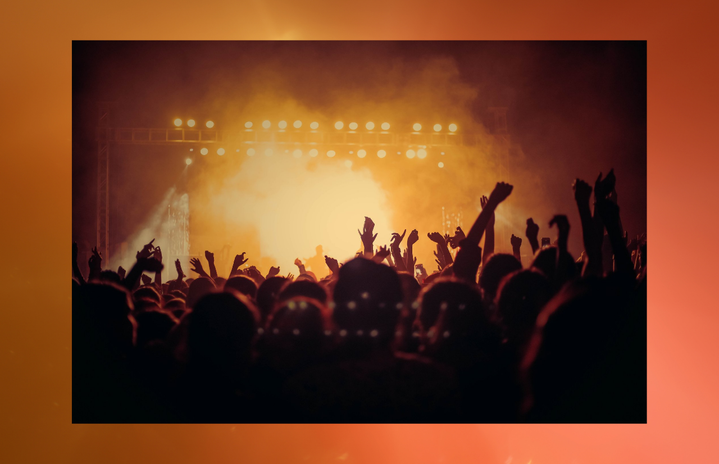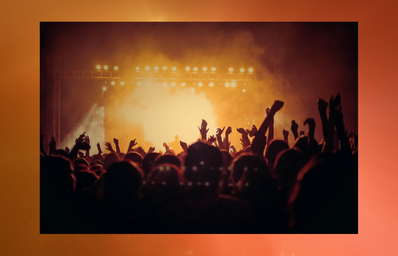On November 25, countless people were involved in a crowd surge at Travis Scott’s Astroworld, resulting in the death of nine people, and criticism for Scott for continuing to perform. What happened at Astroworld has resulted in many expressing their fear to return to concerts, some even planning to keep their distance from music crowds for the foreseeable future. Concert-goers within the crowd were crushed between or knocked to the ground by others rushing towards the front during Travis Scott’s set at Astroworld music festival, while hundreds of others were injured. Unfortunately, this isn’t unheard of – especially not at a Travis Scott concert. But most shows have safety plans in place, trained security personnel watching over, and artists that have proven their responsibility for their audiences.
Several things went wrong that night, resulting in a deadly combination. If each party involved had made more conscientious decisions leading into and during the show, the Astroworld tragedy could have certainly been minimized, if not avoided altogether. Given Travis Scott’s history of encouraging chaos at his shows, the promoter, security teams, and local emergency responders were underprepared for what could happen. The security firm handling the festival is now under fire for a rushed hiring process. One guard even quit the morning of the festival over the lack of training he’d received after seeing fans announce plans online to storm the gate. Astroworld’s safety plan advised what to do in the event of a tornado, but not what to do should the crowd rush forward. Any mention of mobs or disorderly groups gave no best practices for handling them – it only advised to be on the lookout for them.
Attendees that were caught up in the surge reported being pinned in place by the people behind them, as fans pushed forward in an attempt to get closer to the stage. Others fell to the ground, trampled as those behind them moved up, creating piles of bodies in the crowd. Seanna McCarty shared her experience at Astroworld on Instagram, describing the collections of audience members falling to the ground as “sinkholes of people.” She recalls the difficulty breathing and the absence of exits, simultaneously stuck in place and forced around at the will of the crowd. People all around her screamed for the security guards just on the other side of the barrier to help, but their pleas went unanswered. Eventually, she made it to a guardrail that someone lifted her over, allowing her to more directly try to get the attention of someone who could help. Nobody did.
Footage of Seanna and another audience member, Ayden Cruz, was posted to Reddit. The two can be seen climbing to an elevated platform to direct a cameraman’s attention to the people trapped on the floor. The man waves Seanna away instead of looking to the crowd, and she wrote on Instagram that another staff member threatened to have her thrown off of the platform if she didn’t move, ignoring her explanations that people were dying and they needed to pause the show.
Neither person blames the cameraman, though – he didn’t have the power to stop the show and likely didn’t even realize what they were trying to tell him at first. (Seanna believes that it was the cameraman who called for medical staff to come to the area shortly after, but she and several others had to point them to where people needed help when they couldn’t spot them on their own.) But whoever wrote – and approved – the security plan, which failed to prepare for the disaster that actually happened, shares in the responsibility for those who were hurt or killed that night. The security staff who ignored the cries for help from countless people share responsibility for what happened. Even if he couldn’t see the fans on the floor or hear their calls to stop, Travis Scott shares the blame, too, and it also falls on audience members to behave responsibly in a crowd.
There are many artists who embrace their responsibility to their fans and use their voices to gain control of dangerous situations in the crowd. For example, Niall Horan once told a crowd that their security was his responsibility and that the show could not go on until they all took a step back and gave each other a little room.
Adele handed her microphone over to a production member during a festival in Glastonbury so he could give instructions to the crowd to help get medics to someone who’d fallen ill and then kept them calm as security made their way through. She stopped another show when she spotted someone faint, calling over and over for help until she knew the person was being taken care of.
Tim McGraw saw a man put his hands on a woman and physically stopped him himself, sending him off with security without ever even pausing the music. Kurt Cobain also once physically stopped a sexual assault and then called the man out over it.
Billie Eilish called out security for not paying attention during a performance at Governor’s Ball.
Twenty One Pilots heard someone scream out for security and stopped the show, bringing the lights on, parting the audience, and calling for someone to get the person out. The list goes on.
It isn’t strictly a musician’s responsibility to take care of the safety of their audiences. We can’t possibly expect them to see or hear everything in a dark environment with overwhelming amounts of noise. But is is a musician’s responsibility to discourage unsafe behavior and environments at their shows. If something wrong does catch their attention, then it’s their duty to quiet everyone down, bring up the lights, and refuse to resume until it’s resolved.
We may never know for sure if Travis Scott saw or heard everything that was happening that night. If he didn’t, then he isn’t responsible for the failure to stop the show. But he is to blame him for encouraging stage rushes, the abysmal safety plan, and hiring whoever was responsible for it. The security team should have had their eyes peeled. The production team should have stopped the show.
What happened in Houston shouldn’t be the deciding factor in turning your back on live music. Be vigilant in your surroundings always, but a crowd surge is far from the norm. Concerts have always been a place where mutual loves intertwine and grow, where fans from all walks of life come together to escape the real world for a few hours and vibe with something that makes everyone in the crowd happy. Concerts have always been a way for musicians to connect with their fans and for people to connect with the lyrics that have changed them, and that’s what concerts can and should continue to be.


